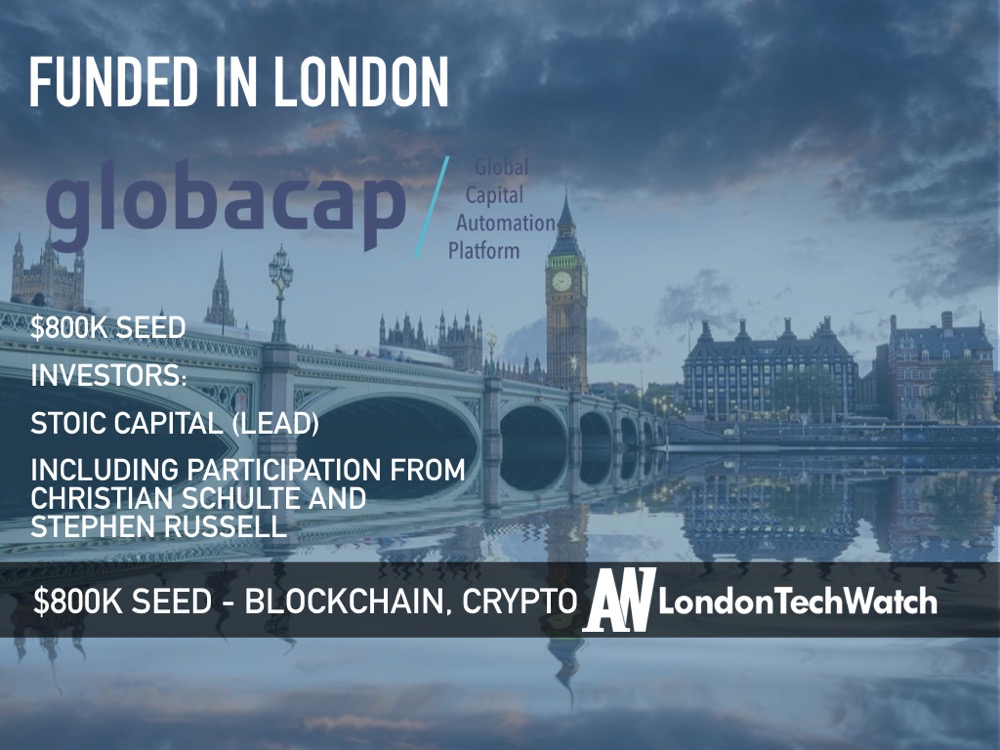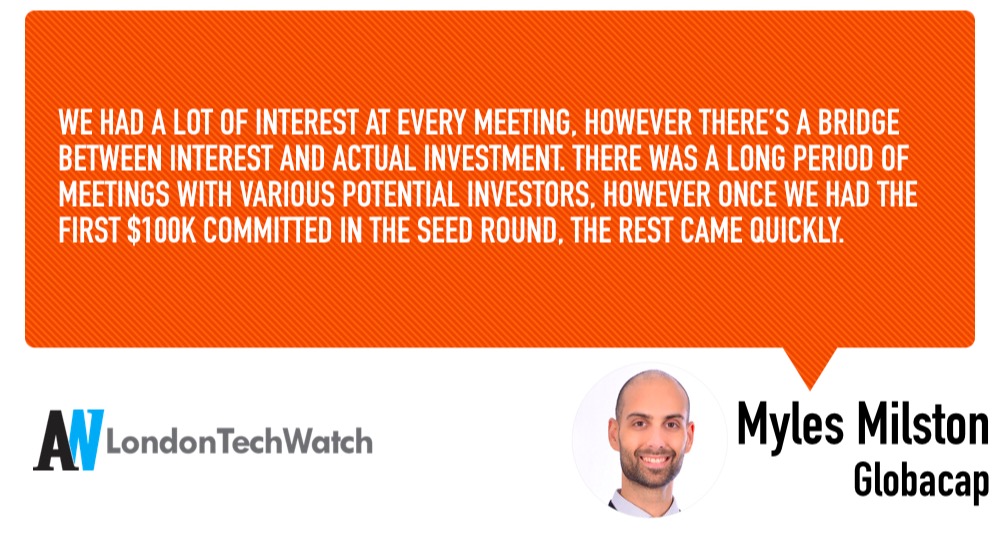Blockchain is a promising technology that many believe will widen the access to capital, and Globacap is the London startup founded on that belief. It provides end-to-end capital raising and it’s the first regulated asset tokenization platform in the UK. This blockchain startup intends to initially target the SME sector – specifically firms trying to raise £500K-£20M via debt or equity funding – and it’s currently performing the first tokenized equity issuance under the supervision of the FCA.
London TechWatch chatted with CEO Myles Milston about creating a platform that will change the way the world acquires capital.
Who were your investors and how much did you raise?
We raised $800K in a seed investment round. Investors were led by Stoic Capital, a crypto specialist family office, with other backers including Christian Schulte, co-founder of Steinbeis Mittelstandsfinanzierung, which provides financing to mid-sized companies in German speaking territories, and Stephen Russell, a veteran of UBS and advisor to financial institutions.
Tell us about Globacap’s product or service.
Our mission is to simplify, streamline, and widen access to global capital.
We’re a regulated asset tokenization platform, providing end-to-end capital raising, investor KYC, custody, and asset administration.
What inspired you to start Globacap?
The opportunity to streamline and change the way the world accesses capital. To make the capital raising process more transparent and more accessible by all. Blockchain enables the process, providing a radical shift in the nature of capital raising.
We are the first regulated asset tokenization platform and are currently performing the first tokenized equity issuance, under the supervision of the FCA here in the UK.
What market is Globacap targeting and how big is it?
Our initial target is the SME sector, and specifically, firms looking to raise anywhere from £500K to through to £20M via debt or equity funding. SMEs comprise 57% of economic turnover in Europe and 67% of private sector employment.
Banks dominate lending to SMEs in Europe, compared to the US where direct lending now comprises almost 50% of financing. There is a lot of room to put more control into the hands of SMEs throughout the capital raising process.
What’s your business model?
1) An end-to-end capital raising platform. We perform automated KYC on potential investors, allow SMEs to create and show their investment opportunity, handle an automated auction process, facilitated the actual investment, and issuance of tokenized securities.
2) An asset administration platform. We provide full servicing of tokenized assets, from the distribution of dividends/coupons, investor messaging, corporate actions, electronic shareholder voting, and a full audit trail together with reporting services.
What are smart contracts and how are they different?
Smart contracts allow securities to be fully digitized. With equities, we can now contain the shareholder registry entirely within a smart contract, allowing for more secure access and more robust data integrity at the same time. With a debt contract, all of the legal terms can be built into the smart contract, which allows for automatic execution based on pre-agreed events.
What was the funding process like?
We had a lot of interest at every meeting, however, there’s a bridge between interest and actual investment. There was a long period of meetings with various potential investors, however, once we had the first $100k committed in the seed round, the rest came quickly.
What are the biggest challenges that you faced while raising capital?
The time-consuming nature of it – we also had a business to build at the same time!
What factors about your business led your investors to write the check?
Strong cofounding and management team, good positioning (we’re in the FCA sandbox), and right timing to execute our business plan.
What are the milestones you plan to achieve in the next six months?
Completion of our 1st and 2nd FCA sandbox tests (the 1st is the issuance of our own tokenized equity through our platform, which is effectively another capital raise for us at the same time – it’s live now on our website). The full launch of our platform in November, followed by several live and completed deals over the following few months.
What advice can you offer companies in London that do not have a fresh injection of capital in the bank?
Build a demo of your product. Have a clear strategic direction, communicate that to potential investors succinctly.
Where do you see the company going now over the near term?
Our full platform is on track to launch in November. We have a small pipeline of deals to start, including a Swiss fund and a Dutch commercial real estate project. Our aim is to complete a series of small deals through to the middle of next year, before starting to scale the platform in Q2/Q3 2019.
What is your favorite London pub to grab a pint with the team?
The Hoop and Grapes on Farringdon Street … it’s just below our office!






